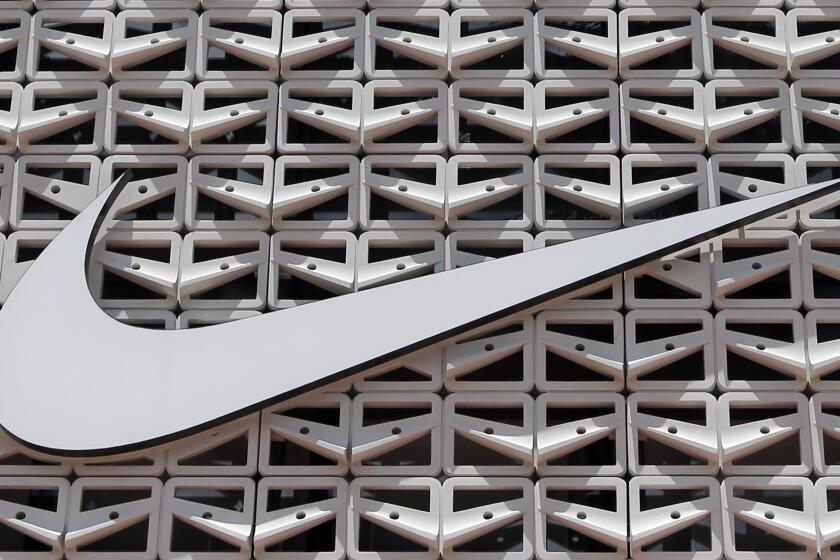NYC proposal gets people talking about soda
The good people of New York City may or may not be able to buy super-size sodas next spring, but their mayor’s proposal has put sugary drinks in the line of fire and sparked a conversation about whether and how they should be regulated.
The Washington nutrition activist Michael Jacobson said he thinks Mayor Michael R. Bloomberg’s idea could be infectious, and make soda like trans fats. What he’d like to see is a return to the 1970s, when soda was a treat rather than a daily drink.
The question of how to encourage people to drink less soda has been around for a long time, said Jacobson, who as executive director of the advocacy organization Center for Science in the Public Interest is no stranger to battles over the American diet. He has campaigned against many a fast food, as well as over-consumption of salt.
The center called activists together recently in Washington for a “soda summit,” a meeting planned before Bloomberg proposed banning the sale of sugary drinks larger than 16 ounces at stadiums, theaters and other venues in New York.
The idea was met with a deluge of positive and negative reaction. Both sides would generally agree that reducing soda consumption won’t solve the obesity problem in the United States, where a third of the population is obese and the costs of the attendant medical problems have grown to many billions of dollars.
Opponents said the ban won’t work. And they said the city should not dictate what size drinks people buy. The industry said soda is being singled out, and it has a website to make its case, www.letsclearitup.org.
“Portion sizing has kind of gotten out of control in America in general,” said Barry Popkin, a nutrition professor at the University of North Carolina and author of the book “The World Is Fat.” “We need to get a dialogue going in the public sector. That’s very important.”
A former Coca-Cola marketing executive, Todd Putnam, has recently been speaking out against his former employer and other beverage companies, including at the Washington meeting. He talked about his work and views – as did a Coke spokesman – in a Washington Post story earlier this month.
And USA Today published an interview with Coke’s president of sparkling beverages in North America. Katie Bayne responded to critics’ characterization of soft drinks as “empty” calories by saying, “A calorie is a calorie. What our drinks offer is hydration. That’s essential to the human body. We offer great taste and benefits whether it’s an uplift or carbohydrates or energy. We don’t believe in empty calories. We believe in hydration.”
Bloomberg’s measure would not stop anyone from drinking soda, obviously. And food marketing experts have said it wouldn’t work anyway.
The New York City Beverage Assn. said “zealous proposals” like Bloomberg’s “just distract from the hard work” needed to fight obesity. It noted that in the last 15 years, the industry has offered more teas and and flavored waters, including many calorie-free choices.
Among the more controversial ideas is whether to impose a tax on soft drinks, and whether to keep food stamp recipients from buying sugary soft drinks. Jacobson said $4 billion a year in food stamps goes toward soft drinks, but no one has studied whether restricting food stamp use would change that --- or whether recipients would use their own money for soft drinks.
Jacobson said consumption of sugary drinks has decreased some because the public is more health-conscious. There’s also been a big increase in bottled water consumption, he said.
Popkin said Bloomberg’s proposal came once he couldn’t get a soda tax. “So it’s a very gutsy, bold first step” that is important symbolically, he added. He said dozens of communities around the country are taking steps to control soda consumption in vending machines and other locations.
Popkin called sugary beverages “the tobacco of obesity,” and while the voluntary actions of corporations like Disney (which recently set out guidelines for ads on its children’s programming) are “wonderful pieces of the pie,” government action is needed.
“Big beverage has realized their day is limited in the U.S. and they have been trying to push water and low-calorie beverages,” he said by phone from his home in North Carolina. “That’s to the good.”
More to Read
Inside the business of entertainment
The Wide Shot brings you news, analysis and insights on everything from streaming wars to production — and what it all means for the future.
You may occasionally receive promotional content from the Los Angeles Times.










